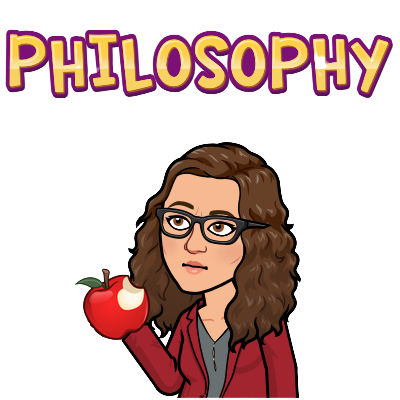Integrating Educational Technology in My Teaching
Innovative practices and implementations are at the core of my educational philosophy. Social media can and should be an integrated part of the learning process. Teachers are faced constantly with futuristic trends to adapt to classrooms of the future of which the setup is unknown. Professional networking is key for those teachers to share resources on the Web. Social media and technology tools themselves are not vehicles for success, but rather, how the tools are used should be the focus. Teachers should model professional use of these opportunities and influence personal vs. professional use. Collaboration via these professional opportunities becomes more enriching and leads to deeper learning and critical thinking at higher creative levels.
As teachers of tomorrow, we must change the way we not only view the world but how we present it to our students. When we miss the opportunity to challenge students with THEIR tools but instead continue to push OURS, we do a disservice to them. The time has come to engage students and find purpose in technology not for the sake of flashy lessons but for the purpose of igniting a passion and excitement for learning that seamlessly becomes a part of the world around them, making them game changers for future opportunities and instilling in them a sense of worth and confidence because we choose to teach them in a way that is familiar and helps them learn. Our professional development for teachers must change and must be creatively and purposefully directed to cultivate the best practices possible for reaching students of now and future generations.
As a professional, one should model those things needed to be a game changer in education. Reaching out to other professionals, presenting at conferences, using social networking tools professionally and productively, and implementing innovational tools to enhance learning are all necessary to model such passion. Students’ lives can be changed with technology in their learning processes, and technology, integrated effectively, can catapult them into a much higher level of awareness and knowledge than without it.
Professionally, the responsibility is to design, implement, and assess technology to enhance learning of the standards and objectives set forth for students and to produce effective digital citizens.
Personal Statements and Evidence for NETS Standards
National Education Technology ( NETS ) Teacher Standards from ISTE
Facilitate and Inspire Student Learning and Creativity (my statement and evidence)
Teachers use their knowledge of subject matter, teaching and learning, and technology to facilitate experiences that advance student learning, creativity, and innovation in both face-to-face and virtual environments.
Design and Develop Digital-Age Learning Experiences and Assessments (my statement and evidence)
Teachers design, develop, and evaluate authentic learning experiences and assessment incorporating contemporary tools and resources to maximize content learning in context and to develop the knowledge, skills, and attitudes identified in NETS.
Model Digital-Age Work and Learning (my statement and evidence)
Teachers exhibit knowledge, skills, and work processes representative of an innovative professional in a global and digital society.
Promote and Model Digital Citizenship and Responsibility (my statement and evidence)
Teachers understand local and global societal issues and responsibilities in an evolving digital culture and exhibit legal and ethical behavior in their professional practices.
Engage in Professional Growth and Leadership (my statement and evidence)
Teachers continuously improve their professional practice, model lifelong learning, and exhibit leadership in their school and professional community by promoting and demonstrating the effective use of digital tools and resources.
Some of My Favorite Books on Education and Educational Technology
Armstrong, Thomas. Multiple Intelligences in the Classroom. 3rd ed. Alexandria, Va.: ASCD, 2009. Print.
Auletta, Ken. Googled: The End of the World as We Know It. New York: Penguin, 2009. Print.Bender, William N., and Laura Waller. The Teaching Revolution: RTI, Technology, & Differentiation Transform Teaching for the 21st Century. Thousand Oaks, Calif.: Corwin, 2011. Print.
Christensen, Clayton M., and Michael B. Horn. Disrupting Class: How Disruptive Innovation Will Change the Way the World Learns. New York: McGraw-Hill, 2008. Print.
Clark, Ron. The Essential 55: An Award-winning Educator's Rules for Discovering the Successful Student in Every Child. New York: Hyperion, 2003. Print.
Collins, Allan, and Richard Halverson. Rethinking Education in the Age of Technology: The Digital Revolution and Schooling in America. New York: Teachers College, 2009. Print.
Gardner, Howard. Frames of Mind: The Theory of Multiple Intelligences. New York: Basic, 1983. Print.
Gardner, Howard. Intelligence Reframed: Multiple Intelligences for the 21st Century. New York, NY: Basic, 1999. Print.
Gee, James Paul. What Video Games Have to Teach Us about Learning and Literacy. New York: Palgrave Macmillan, 2003. Print.
Gibson, David. Games and Simulations in Online Learning Research and Development Frameworks. Hershey, PA: Information Science Pub., 2007. Print.
Johnson, Steven. Everything Bad Is Good for You: How Today's Popular Culture Is Actually Making Us Smarter. New York: Riverhead, 2005. Print.
Jukes, Ian, and Ted D. E. McCain. Understanding the Digital Generation: Teaching and Learning in the New Digital Landscape. Kelowna, BC: 21st Century Fluency Project ;, 2010. Print.
Kelly, Frank S., and Ted D. E. McCain. Teaching the Digital Generation: No More Cookie-cutter High Schools. Thousand Oaks, Calif.: Corwin, 2009. Print.
Marzano, Robert J., and Debra Pickering. Classroom Instruction That Works: Research-based Strategies for Increasing Student Achievement. Alexandria, Va.: Association for Supervision and Curriculum Development, 2001. Print.
Mills, Geoffrey E. Action Research: A Guide for the Teacher Researcher. Upper Saddle River, N.J.: Merrill, 2000. Print.
Palfrey, John G., and Urs Gasser. Born Digital: Understanding the First Generation of Digital Natives. New York: Basic, 2008. Print.
Pasek, Kathy, and Roberta M. Golinkoff. Einstein Never Used Flash Cards: How Our Children Really Learn--and Why They Need to Play More and Memorize Less. Emmaus, Pa.: Rodale ;, 2003. Print.
Pink, Daniel H. A Whole New Mind: Why Right-brainers Will Rule the Future. New York: Riverhead, 2006. Print.
Pink, Daniel H. Drive: The Surprising Truth about What Motivates Us. New York, NY: Riverhead, 2009. Print.
Prensky, Marc. Digital Game-based Learning. New York: McGraw-Hill, 2001. Print.
Prensky, Marc. "Don't Bother Me Mom, I'm Learning!": How Computer and Video Games Are Preparing Your Kids for Twenty-first Century Success and How You Can Help! St. Paul, Minn.: Paragon House, 2006. Print.
Prensky, Marc. From Digital Natives to Digital Wisdom: Hopeful Essays for 21st Century Learning. Thousand Oaks, Calif.: Corwin, 2012. Print.
Restak, Richard M. The New Brain: How the Modern Age Is Rewiring Your Mind. Emmaus, Pa.: Rodale, 2003. Print.
Richardson, Will. Learning on the Blog Collected Posts for Educators and Parents. Thousand Oaks, Calif.: Corwin, 2011. Print.
Small, Gary, and Gigi Vorgan. IBrain: Surviving the Technological Alteration of the Modern Mind. New York: Collins Living, 2008. Print.
Tapscott, Don. Growing up Digital: The Rise of the Net Generation. New York: McGraw-Hill, 1998. Print.
Tapscott, Don, and Anthony D. Williams. Wikinomics: How Mass Collaboration Changes Everything. New York: Portfolio, 2006. Print.
Tapscott, Don. Grown up Digital: How the Net Generation Is Changing Your World. New York: McGraw-Hill, 2009. Print.
Wagner, Tony. The Global Achievement Gap Why Even Our Best Schools Don't Teach the New Survival Skills Our Children Need-- and What We Can Do about It. New York: Basic, 2008. Print.
Watkins, S. Craig. The Young and the Digital: What the Migration to Social-network Sites, Games, and Anytime, Anywhere Media Means for Our Future. Boston: Beacon, 2009. Print.

